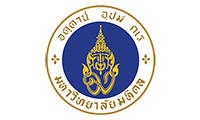The use of wastewater and excreta in agriculture is a common practice in Southeast Asia; however, concerns remain about the potential public health risks of this practice. We undertook a scoping review to examine the extent, range, and nature of literature, as well as synthesize the evidence for associations between wastewater and excreta management practices and public health risks in Southeast Asia. Three electronic databases (PubMed, CAB Direct, and Web of Science) were searched and a total of 27 relevant studies were included and evaluated. The available evidence suggested that possible occupational health risks of wastewater and excreta management practices include diarrhea, skin infection, parasitic infection, bacterial infection, and epilepsy. Community members can be at risk for adverse health outcomes through consuming contaminated fish, vegetables, or fruits. Results suggested that practices including handling, treatment, and use of waste may be harmful to human health, particularly farmer’s health. Many studies in this review, however, had limitations including lack of gender analyses, exposure assessment, and longitudinal study designs. These findings suggest that more studies on identifying, quantitatively assessing, and mitigating health risks are needed if sustainable benefits are to be obtained from wastewater and excreta reuse in agriculture in Southeast Asia.
Click here to view the full paper












